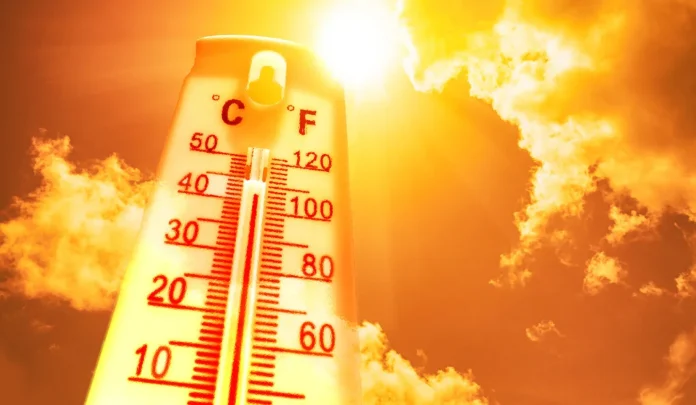Delhi experienced record-breaking high temperatures! The mercury soared to 49.9 degrees Celsius, which is extremely hot. Some areas like Mungeshpur, Narela, and Najafgarh also faced scorching temperatures above 49 degrees Celsius. This heatwave is significantly higher than the normal temperatures by 9 degrees Celsius.
Delhi’s main weather station in Safdarjung reported a temperature of 48.5 degrees Celsius, which is five degrees above the usual. The highest temperature ever recorded in Delhi in the last century was 49.2 degrees Celsius, which happened on May 15-16, 2022.
The record-breaking temperatures are happening alongside a ‘red’ alert warning for several regions, including Rajasthan, Punjab, Haryana, Chandigarh, Delhi, western Uttar Pradesh, and Gujarat. This alert signifies a high risk of heat-related illnesses for people of all ages.
The reason behind this intense heat, as explained by Mahesh Palawat from Skymet Weather, is the increased radiation in open areas with no shade, leading to exceptionally high temperatures. When the wind blows from the west, these areas are affected first, causing temperatures to rise rapidly. Thankfully, some relief is on the way with the possibility of thunderstorms and light rain forecasted by the IMD for Friday and Saturday.
Gurgaon hit a scorching 47 degrees Celsius on Tuesday, making it the hottest day of the season so far and the third consecutive heatwave day. Additionally, due to the soaring temperatures, a forest fire broke out near Faridabad’s Surajkund in the Aravallis around 1 p.m. on Tuesday.
Despite the fire department’s quick response in extinguishing the flames within 30 minutes, several acres of land and trees were unfortunately charred, as per residents. Noida also experienced intense heat at 47.3 degrees Celsius.
With temperatures soaring above 42 degrees Celsius, people are at risk of heat stroke, a serious medical condition characterized by a rise in core body temperature, often exceeding 104°F (40°C). Doctors emphasize that heat stroke can result in dysfunction of the central nervous system.
When the body’s ability to regulate temperature fails, severe dehydration occurs, indicating a critical situation. Doctors caution about the dangers of high temperatures, warning that heat stroke could potentially lead to a brain stroke in extreme cases, especially when it causes severe dehydration, leading to blood thickening and impaired circulation throughout the body.























































